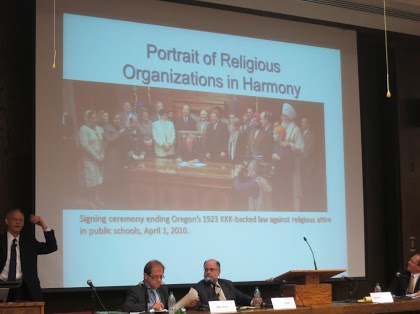Second Plenary Session: Religious Organizations, Civil Society, and Pluralism

Jordan Pendergrass, Research Advisor
Allen Hertzke, Presidential Professor of Political Science at the University of Oklahoma, began the session by establishing a government-civil society paradox. Governments, he explained, feel the impulse to intrude upon civil society and whenever they succumb to the impulse their efficacy is undermined and certain classes are discouraged from making positive contributions to society. Mr. Hertzke cited a variety of social scientists whose findings point to the centrality of religious organizations. He continued by showing that there are strong correlations between social goods and the free exercise of religion. He made reference to the “Twin Tolerations” and the cycles of religious freedom and religious violence.
Ram Cnaan, Director, Program for Religion and Social Policy Research at the University of Pennsylvania, provided an overview of social work and the ability of religious organizations to “heal”. Mr. Cnaan demonstrated how America’s unique history and culture made it possible for religious organizations to become considered as providers of welfare. Using his research in Philadelphia as an example, he showed how congregations follow people and they do not run from social problems. Providing welfare services, he concluded, is essential and it is now a task shared by church and state.
Rik Torfs, Senator, Senate of Belgium, examined the various positions religious organizations can take with respect to the state and explained that religious organizations can take advantage of their right to association and be peculiar. He established how there are right and wrong ways to order religion and civil society, citing among other things the dangers of blasphemy laws and the benefits of correctly applying the principles of the Twin Tolerations. He concluded by describing the challenges Europeans face in protecting religious freedom as their religiosity declines.